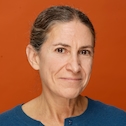Efforts to tackle diseases such as polio, measles and meningitis may have become victims of their own remarkable success, according to one of the nation’s leading experts on vaccines.
Over time, more and more parents have stopped thinking vaccines are necessary. And that thinking, along with growing distrust in vaccines in general, has led preventable diseases including measles to make a comeback, said Dr. Paul Offit, a co-inventor of a rotavirus vaccine and a professor at the University of Pennsylvania.
Offit gave the commencement address Thursday for the 138 newly minted doctors at the University of Maryland School of Medicine graduation.
The troubling mistrust of vaccines, he said, has been exacerbated by the coronavirus pandemic, spread by social media and now embedded in the federal government under the Trump administration.
“It’s very easy to spread misinformation and disinformation,” Offit said during the commencement address at the Hippodrome Theatre in Baltimore. “But all is not lost.”
He exhorted the next generation of physicians to steer people toward good local sources of information in an effort to regain the public’s trust. Doctors, he said, can be honest about medical shortcomings and how the profession course-corrects when needed. And Offit said they should speak with patients about the effects of disease in human terms — not as statistics.
Read More
Science will win out if they stand firm, according to Offit. COVID-19 vaccines, he reminded them, saved millions of lives.
“It doesn’t matter how many times our Secretary of Health and Human Services Robert F. Kennedy Jr. claims that vaccines cause autism,” Offit said. “They don’t.”
This week, the Food and Drug Administration under Kennedy unveiled additional measures that could curb the nation’s push to get more people vaccinated. The agency announced a plan to limit COVID-19 vaccines to those age 65 and older and those with at least one especially risky preexisting condition if they were to contract COVID. Those exceptions include heart disease, obesity and pregnancy.
The vaccines would also have to undergo new and likely expensive testing to be offered to healthy adults and children, a process some advocates have criticized as cumbersome.
Some experts say boosters may not be universally necessary. But the Trump administration’s moves could also limit access for those who want it. Insurance companies may not cover people seeking the inoculation who don’t qualify under new federal guidelines.
In this changing world, Maryland medical school graduates should lean on their training in research and medical care in Baltimore as they pursue residencies to complete their pathway to becoming practicing physicians, said Dr. Mark T. Gladwin, a professor and dean of the medical school and vice president for medical affairs at the University of Maryland, Baltimore.
He touted how the medical school was closely affiliated with a major academic medical center, allowing it to be part of groundbreaking scientific research and medical care.
Armed with that education, Gladwin said, the graduates would soon find that the world “needs dedicated young people on a mission to serve.”




Comments
Welcome to The Banner's subscriber-only commenting community. Please review our community guidelines.